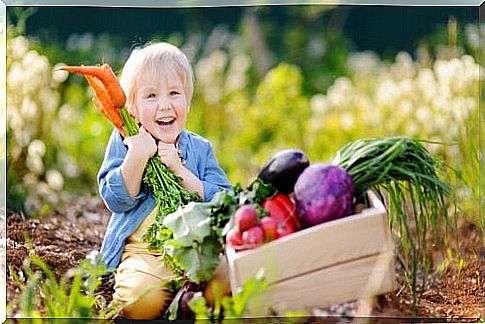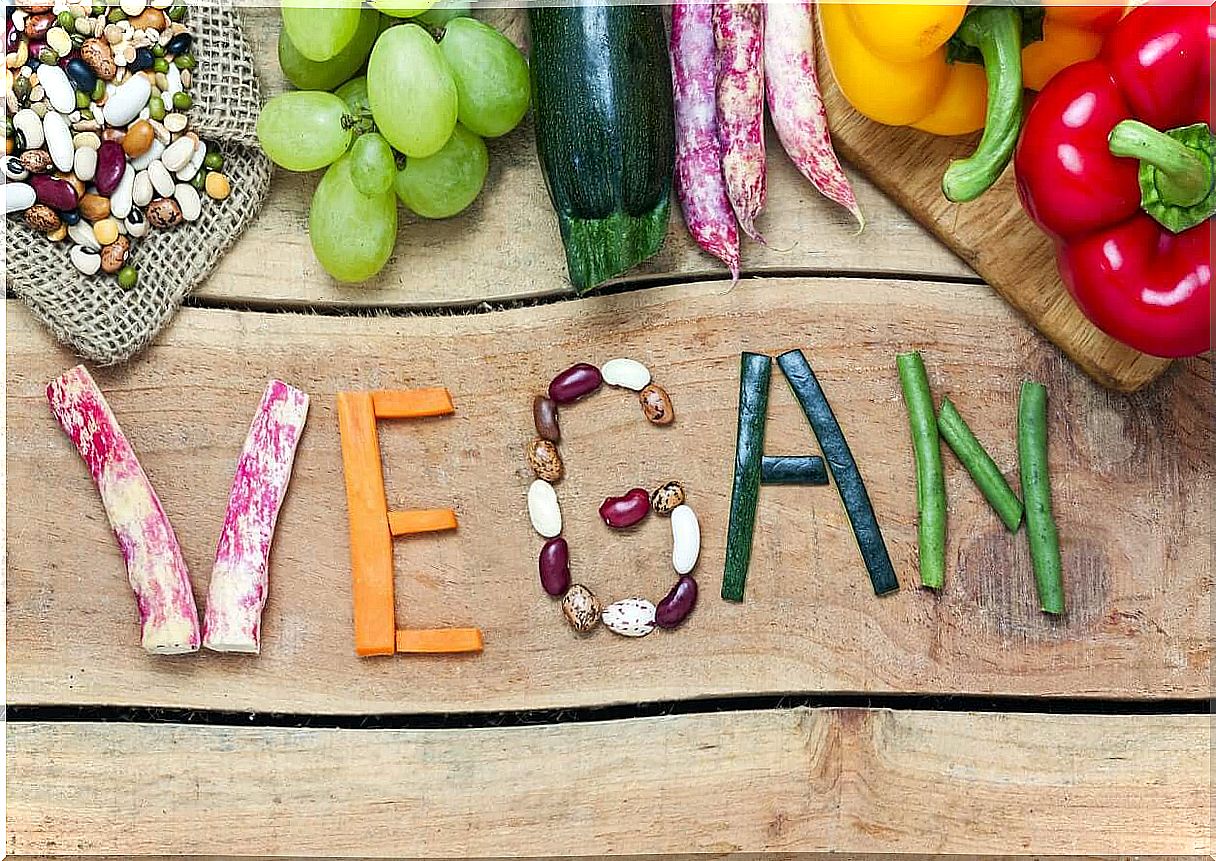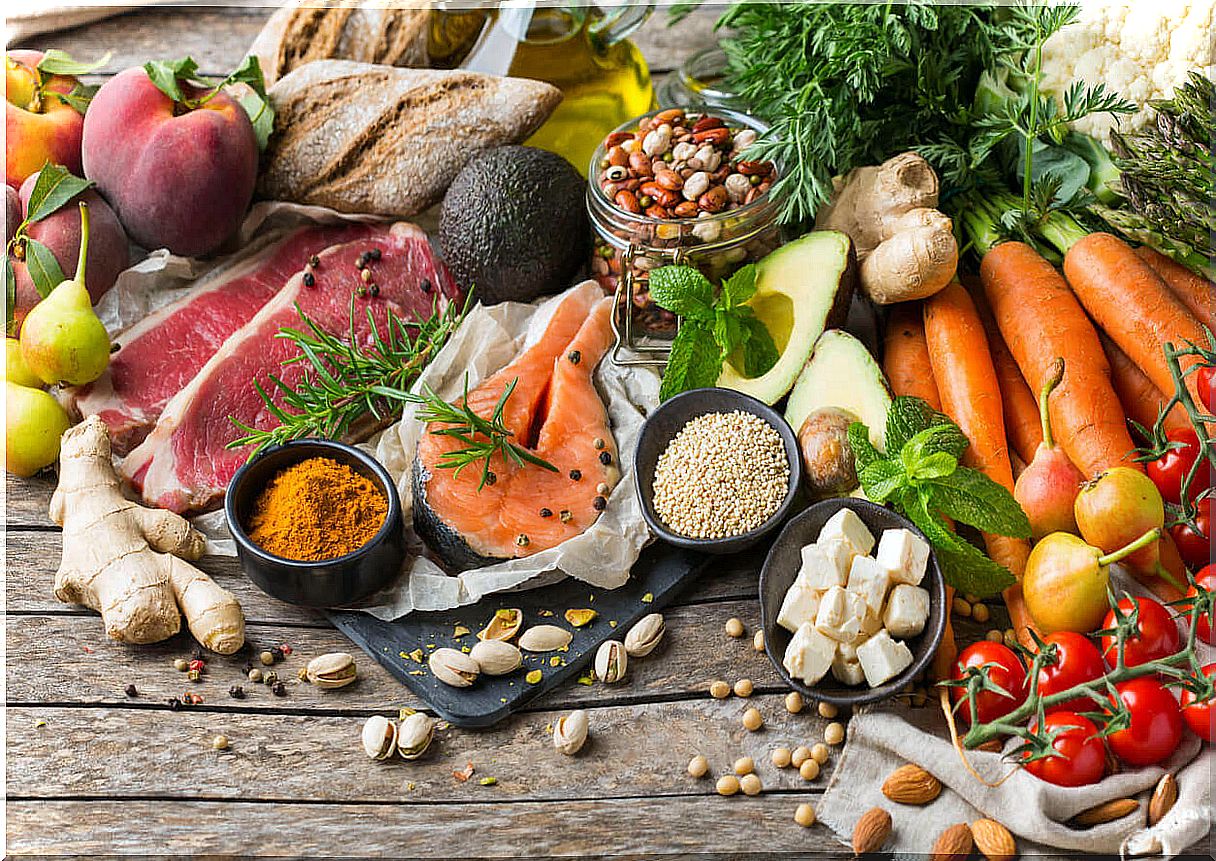Vegan Diet For Babies: What You Should Know

Vegan diet for babies is something that experts do not recommend. This means that your strategy may not be viable because you need to include a number of non-vegan supplements. As such, it is not a good option when it comes to ensuring optimal growth in the young child.
One of the principles of a healthy diet is variety and therefore it is best to broaden the food spectrum as much as possible. Especially during the first stages of life, where nutritional deficiencies can seriously affect the state of health.
How do I go about a vegan diet for babies?

Although most experts do not recommend it, some parents choose to follow this eating habit. Therefore, professional intervention is crucial to follow a vegan diet that is as nutritionally complete as possible.
Up to 6 months of life, breast milk covers all children’s protein needs. But after that, parents need to include foods that contain protein in their diet, especially when they choose to stop breastfeeding.
According to a study published in the Annals of Nutrition & Metabolism , parents must offer a wide range of protein during the first stages of life in order for the child to grow and develop properly.
These nutrients are found in meat and animal derivatives (such as dairy), but also in vegetables and cereals, although not of the same good quality. Protein supplements are an option when it comes to achieving an adequate intake when it comes to offering vegetarian (non-vegan).
An important aspect when planning a vegan diet for a baby is to ensure a variety of herbal foods. In line with this, it is important that cereals, legumes and root vegetables appear frequently.
It is very important for parents to know that this type of diet has to do with an increased risk of low weight in infants, compared to those who receive a complete (omnivorous) diet. The results of the studies, which are not always completely decisive, great caution and tolerance have been shown especially against results that indicate a negative impact on the vegan diet, as a recent review indicates. But it clearly points to the fact that a strict vegan diet does not correspond to a full-fledged all-inclusive diet.
Other nutritional deficiencies that have to do with the vegan diet for infants
Protein intake is not the only critical aspect of the vegan diet for infants, as deficiencies in iron, vitamin B12, calcium and vitamin D can also occur. In addition, this type of diet can jeopardize the intake of zinc. This is due to the difficulty of including nuts in the diet of the little ones.
Vitamin B12 is usually supplemented with pharmacological preparations, as the only source of the nutrient is food of animal origin. Failure to add it to the diet means that the child is at risk of developing megaloblastic anemia in the medium term, as research in the Nestle Nutrition Institute Workshop Series reveals .
When considering a vegan diet for infants, it is best to do some biochemical analyzes of the blood to know its health status. Many times it is difficult to recognize the symptoms of nutritional deficiencies and, if this condition persists, the child risks experiencing problems in his health and development.
When low levels of an essential nutrient are detected in the blood, it will be necessary to resort to supplementation and reorganization of the dietary pattern. For this reason, it is important to carry out close monitoring to avoid chronic diseases.
Experts discourage vegan diets for infants

In adults, the vegan diet can offer some benefits. However, it is not the appropriate type of diet for a growing child.
Non-omnivorous diets, including vegan diets, are not recommended at all during childhood. This is because the potential benefits do not outweigh the risks, which are much more than people realize.
During the first stages of life, it is best to invest in a good nutrition education, where the consumption of fresh food is prioritized over industrial ultra-processed foods. Also, postpone the approach with a restrictive diet until adulthood.
The nutritional deficiencies that occur during childhood seriously affect the child’s future health. For this reason, it is important to ensure an adequate intake of all types of nutrients in childhood and adolescence.









